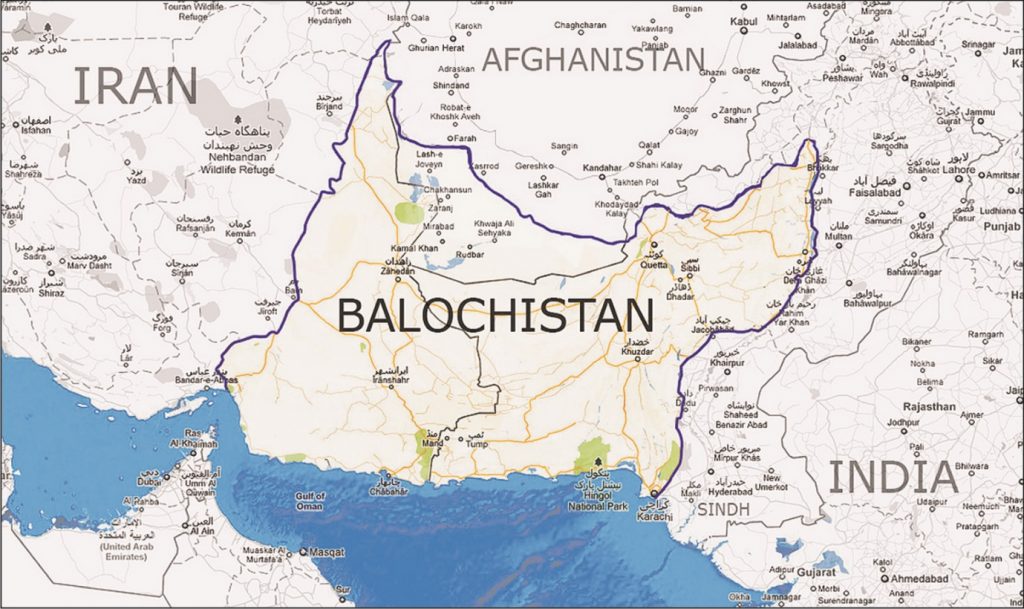In a key development for the restoration of peace in the Balochistan province, Commander of Baloch Nationalist Army (BNA) Sarfaraz Bangulzai, along with his 70 companions on December 20, last year surrendered to the state and joined the national mainstream.
Balochistan’s top separatist leader Gulzar Imam alias Shambay who was also the founder of the banned outfit BNA was arrested on April 7, 2023.
Addressing the media along with Home Minister Ziaullah Langove on May 13, 2023, Gulzar Imam apologised for terrorism-related attacks and urged all insurgents operating in Balochistan to surrender and adopt a peaceful life, saying that rights could only be achieved through political and constitutional struggle.
Gulzar Imam’s arrest was a big setback to the terrorist groups and their handlers in Balochistan. It was also a big success for Pakistani intelligence agencies—Law Enforcement Agencies (LEAs)—sequel to an excellent intelligence operation by the country’s primary intelligence agency ISI which captured this terrorist who was living under the wings of hostile foreign intelligence agencies.
In fact, various separatist terror groups have cast a shadow on the genuine aspirations of the Baloch people. Shambay’s capture created a leadership vacuum within the BNA which was formed after the merger of the Balochistan Republican Army (BRA) and the United Baloch Army (UBA). This resulted into internal conflicts over resources and finances, severely hampering the insurgency’s capacity to function as a cohesive unit. Hence, BNA now appears on the verge of collapse. This crack offers a golden opportunity for reconciliation, as offered by Pakistan. The kind treatment extended to surrendered militants, like Sarfaraz Bangulzai and his men, presents an enticing scheme for others. Bangulzai’s defection has also created a domino effect, leading to a mass exodus from the BNA.
This crucial situation presents an exceptional opportunity to explore possibilities of peace dialogues. Therefore, the Pakistan Government emphasises reconciliation with the aim of fostering a sense of shared identity—belonging among the varied groups of Balochistan.
The Baloch is an inclusive nation, making efforts for a peaceful and prosperous future for all people. Any endeavor to create division among them in the name of greater Balochistan is nothing but a designed strategy to break Pakistan. And India has been targeting Balochistan to divert the world’s attention from the atrocities, being committed by the Indian security forces in the Indian Occupied Kashmir. This narrative stresses that Balochistan belongs to its people and the state will not allow anarchists working at the behest of foreign agencies to hijack Baloch nationalism.
Those at the helm are completely aware of the Baloch peoples’ grievances, who are being harmed by the misguided dissidents. Talking cognizance of these concerns, the government offers Baloch youth opportunities for success through improved access to quality education and employment opportunities. It also pledged a share in the prosperity promised by the exploration of mineral resources in the province.
Meanwhile, law enforcement actions and the fencing of the international border have improved security in Balochistan. Coupled with the offer of reconciliation presents a compelling reason for separatists to lay down arms and rejoin the mainstream. The responsibility of the patriotic Baloch is to reject these anarchists’ conspiracy through collective action and cooperation with the security forces.
The country’s efforts to develop Balochistan should be explained especially China-Pakistan Economic Corridor (CPEC) projects, including the development of Gwadar Port. These initiatives aim to generate revenue for Balochistan and to create jobs for their people.
The latest terrorist attacks on these projects prove the insurgents’ intention to weaken the development in the province. The question arises as to why the progress of the province was targeted by the so-called nationalists who claim that they are fighting for the rights of the Baloch.
However, the ASAs are hampering Balochistan’s progress by attacking vital infrastructure projects like dams, communication facilities, and transportation networks. These moves are portrayed as inflicting real damage on the Baloch people themselves, hindering economic development and essential services.
Moreover, the human rights activists have continued their propaganda campaign in their call against the illegal abductions, while setting aside the ASA’s recruitment of students into militants’ outfits, which is a clear violation of the right to education and a tactic to manipulate young people. As regards the issue of missing persons, the state contends that exaggerated figures are being quoted and that many missing persons are actually hiding in the insurgents’ camps.
Recent events like the involvement of Abdul Wadood Satakzai and Karim Jan Baloch in terrorist assaults are being used as instances of Baloch youth being exploited by human rights activists—in a long march seen as propaganda against Pakistan. Such actions also hinder genuine efforts towards peace and reconciliation.
Nevertheless, this critical state of affairs necessitates the continuation of genuine endeavours to address the root causes of the separatist elements, ensuring fair treatment of all Balochi people and adopting a real sense of justice.
Now, BNA and other separatist groups must reconcile and surrender for ultimate integration into the society, which can lead to the development of Balochistan as well as Pakistan.

